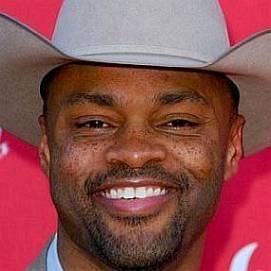Travis Tritt Biography
Travis Tritt is an American country music singer, songwriter, and actor. Tritt signed to Warner Bros. Records in 1989, releasing seven studio albums and a greatest hits package for the label between then and 1999.
He released two albums on Columbia Records in the 2000s and one for the now-defunct Category 5 Records. Seven of his albums (counting the Greatest Hits) are certified platinum or higher by the Recording Industry Association of America (RIAA); the highest-certified is 1991’s It’s All About to Change, which is certified triple-platinum. He has also charted more than 40 times on the Hot Country Songs charts, including five number ones “Help Me Hold On,” “Anymore,” “Can I Trust You with My Heart,” “Foolish Pride” and “Best of Intentions” and 15 additional top ten singles. His musical style is defined by mainstream country and Southern rock influences.
Tritt has received two Grammy Awards, both for Best Country Collaboration with Vocals: in 1992 for “The Whiskey Ain’t Workin’,” a duet with Marty Stuart, and again in 1998 for “Same Old Train”, a collaboration with Stuart and nine other artists. To top it up, he has received four awards from the Country Music Association and has been a member of the Grand Ole Opry since 1992.
Travis Tritt Age
The country music star was born on 9th February 1963 in Marietta, Georgia, United States. He is aged 56 years as of 2019.
Travis Tritt Net Worth | Salary
The singer has a net worth of 35 million US dollars.

Travis Tritt Wife
He married his high school sweetheart, Karen Ryon, in September 1982. They moved into an apartment. The two stayed together for two years, while Tritt worked at an air conditioning company and Karen at a Burger King. They however divorced two years later. Upon going to court, Tritt was ordered to pay alimony to Karen for six months. At the age of 21, he married a woman named Jodi Barnett, who was 33 at the time.
Tritt divorced her shortly after signing with Warner Bros. in 1989; the divorce finalized one month before “Country Club” was released. He wrote the song “Here’s a Quarter” the night he received his divorce papers. Tritt married Theresa Nelson on April 12, 1997.
Travis Tritt Daughter
Tritt and Theresa have two sons: Tristan James (born June 16, 1999) and Tarian Nathaniel (born November 20, 2003) and one daughter, Tyler Reese (born February 18, 1998).
Travis Tritt Songs and Albums
Studio albums
- Proud of the Country (1987)
- Country Club (1990)
- It’s All About to Change (1991)
- T-R-O-U-B-L-E (1992)
- Ten Feet Tall and Bulletproof (1994)
- The Restless Kind (1996)
- No More Looking over My Shoulder (1998)
- Down the Road, I Go (2000)
- Strong Enough (2002)
- My Honky Tonk History (2004)
- The Storm (2007)
- The Calm After… (2013)
Billboard number-one singles
- “Help Me Hold On” (1990)
- “Anymore” (1991)
- “Can I Trust You with My Heart” (1992 – 1993)
- “Foolish Pride” (1994)
- “Best of Intentions” (2000)
Travis Tritt Family
He first took interest in singing after his church’s Sunday school choir performed “Everything Is Beautiful.” Tritt received his first guitar at age eight and taught himself how to play it; in the fourth grade, he performed “Annie’s Song” and “King of the Road” for his class, and later got invited to play for other classrooms in his school.
When he was fourteen, his parents bought him another guitar and he learned more songs from his uncle, Sam Lockhart. Afterward, Tritt joined his church band, which occasionally performed at other churches nearby. He began writing music while he was attending Sprayberry High School; his first song composition, entitled “Spend a Little Time”, was written about a girlfriend whom he had broken up with.
Tritt performed this song for his friends, one of whom complimented him on his songwriting skills. Tritt also founded a bluegrass group with some of his friends, and won second place in a local tournament for playing “Mammas Don’t Let Your Babies Grow Up to Be Cowboys”. In his teenage years, Tritt worked at a furniture store, and later as a supermarket clerk.
Tritt lived with his mother after she and his father divorced; they remarried each other when he was eighteen. Tritt worked at an air conditioning company while playing in clubs, but gave up the air conditioning job at the suggestion of one of his bandmates. His father thought that Tritt would not find success as a musician, while his mother thought that he should perform Christian music instead of country.
With the assistance of Warner Bros. Records executive Danny Davenport, Tritt began recording demos. The two worked together for the next several years, eventually putting together a demo album called Proud of the Country. Then Davenport sent the demo to Warner Bros. representatives in Los Angeles, who in turn sent the demo to Warner Bros.’ Nashville division, which signed Tritt in 1987.
Later Davenport also helped Tritt find a talent manager, Ken Kragen. At first, Kragen was “not interested in taking an entry-level act,” but he decided to sign on as Tritt’s manager after Kragen’s wife convinced him.
Travis Tritt Music Career
1989–1991: Country Club
His contract with Warner Bros. meant that he was signed to record six songs, and three of them would be released as singles. In accordance to the contract, he would not be signed on for a full album unless one of the three singles became a hit. Tritt’s first single was “Country Club.” Recorded in late 1988 and released on August 7, 1989, the song spent 26 weeks on the Hot Country Singles & Tracks charts, peaking at number nine.
The title track to his 1990 debut album Country Club, produced by Gregg Brown. That month of its release, Tritt burst a blood vessel on his vocal cords and had to take vocal rest for a month. The second single “Help Me Hold On” became his first number-one single in 1990. That album’s third and fifth singles, “I’m Gonna Be Somebody” and “Drift Off to Dream,” respectively peaked at numbers two and three on the Hot Country Singles & Tracks charts, and number one on the Canadian RPM country charts; “I’m Gonna Be Somebody” also went to number one on the U.S. country singles charts published by Radio & Records.
“Put Some Drive in Your Country,” which was released fourth, peaked at 28 on Hot Country Songs. Country Club was certified platinum by the Recording Industry Association of America (RIAA) in July 1991 for shipments of one million copies, and double-platinum in 1996. He won the Top New Male Artist award from Billboard in 1990. The Country Music Association (CMA) also nominated him for the Horizon Award (now known as the New Artist Award), which is given to new artists who show have shown the most significant artistic and commercial development from a first or second album.
Brian Mansfield of Allmusic gave the album a positive review, saying that “Put Some Drive in Your Country” paid homage to Tritt’s influences, but that the other singles were more radio-friendly. Giving the album a B-minus, Alanna Nash of Entertainment Weekly compared Tritt’s music to that of Hank Williams, Jr. and Joe Stampley.
1991–1992: It’s All About to Change
Tritt in 1991 received a second Horizon Award nomination, which he won that year. Trit also released his second album, It’s All About to Change. The album went on to become his best-selling, with a triple-platinum certification from the RIAA for shipments of three million copies. Then all four of its singles reached the top five on the country music charts.
“Here’s a Quarter (Call Someone Who Cares)” and the Marty Stuart duet “The Whiskey Ain’t Workin’,” respectively the first and third singles, both reached number two, with the number-one “Anymore” in between. “Nothing Short of Dying” was the fourth single, with a peak at number four on Billboard; both it and “The Whiskey Ain’t Working” went to Number One on Radio & Records.
“Bible Belt,” another cut from the album (recorded in collaboration with Little Feat), appeared in the 1992 film My Cousin Vinny (the lyrics for the song, however, were changed for the version played in the movie to match the storyline). But not released as a single, it peaked at number 72 country based on unsolicited airplay and was the b-side to “Nothing Short of Dying.” “Bible Belt” was inspired by a youth pastor whom Tritt knew in his childhood.
1992–1993: T-R-O-U-B-L-E and A Travis Tritt Christmas
He and Stuart began a “No Hats Tour” in 1992. August of that same year, Tritt released the album T-R-O-U-B-L-E. Its first single was “Lord Have Mercy on the Working Man,” a song written by Kostas. The song, which featured backing vocals from Brooks & Dunn, T. Graham Brown, George Jones, Little Texas, Dana McVicker (who also sang backup on Tritt’s first two albums), Tanya Tucker and Porter Wagoner, peaked at number four.
The follow-up, “Can I Trust You with My Heart,” became Tritt’s third Billboard number one in early 1993. Album’s next three singles did not perform as well on the charts: the title track (a cover of an Elvis Presley song), peaked at 13, followed by “Looking Out for Number One” at number 11 and “Worth Every Mile” at number 30. T-R-O-U-B-L-E became the second album of his career to achieve double-platinum certification.
Stephen Thomas Erlewine of Allmusic thought that T-R-O-U-B-L-E followed too closely the formula of It’s All About to Change, but said that the songs showed Tritt’s personality. Then Nash gave the album a similar criticism, but praised the rock influences of “Looking Out for Number One” and the vocals on “Can I Trust You with My Heart.”
1994–1995: Ten Feet Tall and Bulletproof and Greatest Hits
After “Worth Every Mile” fell from the charts, Tritt charted at number 21 with a cover of the Eagles’ “Take It Easy”. Tritt recorded this song for the tribute album Common Thread: The Songs of the Eagles (released through Warner Bros.’ Giant Records division), which featured country music artists’ renditions of Eagles songs. While filming the music video for this song, Tritt requested that the band, which had been on hiatus for over 13 years, appear in it.
This reunion inspired the Eagles’ Hell Freezes Over Tour, which began that year. The fourth album, Ten Feet Tall and Bulletproof, was released that May. Its lead-off single, “Foolish Pride”, went to number one and the fourth single, “Tell Me I Was Dreaming”, reached number two. Between these songs were the title track at number 22 and “Between an Old Memory and Me” (originally recorded by Keith Whitley) at number 11.
That album included two co-writes with Gary Rossington of Lynyrd Skynyrd and guest vocals from Waylon Jennings and Hank Williams, Jr. on the cut “Outlaws Like Us”. That album achieved platinum certification in December of that year, and later became his third double-platinum album. Allmusic reviewer Brian Mansfield said that Tritt was “most comfortable with his Southern rock/outlaw mantle” on it, comparing “Foolish Pride” favorably to “Anymore” and the work of Bob Seger.
Nash praised the title track and “Tell Me I Was Dreaming” in her review for Entertainment Weekly, but thought that the other songs were still too similar in sound to his previous works.
1996–1997: The Restless Kind
Tritt and Stuart charted a third duet in April 1996, “Honky Tonkin’s What I Do Best,” which appeared on Stuart’s album of the same name and peaked at 23 on the country charts. That song won both artists that year’s Country Music Association award for Vocal Event, Tritt’s third win in this category. Those two began a second tour, the Double Trouble Tour, that year.
1998–1999: No More Looking over My Shoulder
He and several other artists in 1998 contributed to Stuart’s “Same Old Train,” a cut from the collaborative album Tribute to Tradition; this song charted at number 59 on Hot Country Songs and won Tritt his second Grammy for Best Country Collaboration with Vocals. Tritt also performed on Frank Wildhorn’s concept album of the musical The Civil War, singing the song “The Day the Sun Stood Still”.
That year’s end, Tritt also released his final Warner Bros. album, No More Looking over My Shoulder. That was his first of four consecutive albums which he produced with Billy Joe Walker, Jr., who is a session guitarist, producer, and New Age musician. That album was led off by the ballad “If I Lost You,” which peaked at number 29 on the country charts and number 86 on the Hot 100.
Then Michael Peterson (who recorded for Warner Bros.’ Reprise label at the time) co-wrote and sang backing vocals on the title track, which went to number 38 country in early 1999. Album’s third and final single was a cover of Jude Cole’s “Start the Car” (previously the B-side to “If I Lost You”), which peaked at number 52.
2000–2002: Down the Road, I Go
After leaving Warner Bros. Records, Tritt signed to Columbia Records and released the album Down the Road I Go in 2000. Album’s first release was “Best of Intentions,” his fifth and final number one hit on Billboard. Which was also his most successful entry on the Hot 100, where it reached number 27. The next two singles, “It’s a Great Day to Be Alive” and “Love of a Woman,” both peaked at number two on the country charts in 2001, followed by “Modern Day Bonnie and Clyde” at number eight.
The three songs also crossed over to the Hot 100, respectively reaching peaks of 33, 39 and 55. He wrote or co-wrote seven of the album’s songs, including “Best of Intentions,” and collaborated with Charlie Daniels on two of them. “It’s a Great Day to Be Alive” was originally recorded by Jon Randall, whose version was to have been included on an unreleased album for BNA Records in the late 1990s.
2002–2005: Strong Enough and My Honky Tonk History
Tritt on September 2002 released his second album on Columbia Records, Strong Enough. Its first single was “Strong Enough to Be Your Man” (an answer song to Sheryl Crow’s 1994 single “Strong Enough”) which reached number 13. The only other release was “Country Ain’t Country,” which peaked at 26 on the country charts. William Ruhlmann gave the album a generally positive review on Allmusic, saying that he considered its sound closer to a mainstream country than Tritt’s previous albums.
2007–present: The Storm and The Calm After…
He exited Columbia in July 2005, citing creative differences over My Honky Tonk History. Then signed to the independent Category 5 Records in February 2006 and served as the label’s flagship artist. A concert promoter in March 2007 in the Pittsburgh area sued Tritt, claiming he had committed to play a show, but then backed out and signed to play a competing venue.
His manager denied he had ever signed a contract with the promoter. He released his first single for Category 5 in May 2007: a cover of the Richard Marx song “You Never Take Me Dancing.” It was included on his only album for Category 5, The Storm, which American Idol judge Randy Jackson produced. That album featured a more rhythm and blues influence than Tritt’s previous works.
“You Never Take Me Dancing” peaked at number 27 on the country charts; a second single, “Something Stronger Than Me,” was released in October, but it did not chart. Category 5 closed in November 2007 after allegations that the label’s chief executive officer, Raymond Termini, had illegally used Medicaid funds to finance it. One month later, Tritt filed a $10 million lawsuit against Category 5, because the label had failed to pay royalties on the album and failed to give him creative control on The Storm.
Travis Tritt Awards
In 1990, with Billboard, he won the Top New Male Artist. He won the Country Music Association with Horizon Award. In 1992 he was nominated for Vocal Event of the Year and won for “This One’s Gonna Hurt You” (with Marty Stuart). In the same years, Grammy Awards won Best Country Collaboration with Vocals for “The Whiskey Ain’t Workin'” (with Marty Stuart).
In 1993, in Country Music Association he won Vocal Event of the Year in “I Don’t Need Your Rockin’ Chair” (with George Jones et al.) In 1996 he won Vocal Event of the Year in “Honky Tonkin’s What I Do Best” (with Marty Stuart). In 1999 he won Grammy Awards for Best Country Collaboration with Vocals for “Same Old Train” (with Marty Stuart et al.).
Travis Tritt Twitter
Travis Tritt Instagram
View this post on Instagram
Well, last night’s show was four songs long. Tonight’s was only three. I’m starting to think Mother Nature doesn’t like me very much.
About InformationCradle Editorial Staff
This Article is produced by InformationCradle Editorial Staff which is a team of expert writers and editors led by Josphat Gachie and trusted by millions of readers worldwide.
We endeavor to keep our content True, Accurate, Correct, Original and Up to Date. For complain, correction or an update, please send us an email to informationcradle@gmail.com. We promise to take corrective measures to the best of our abilities.






